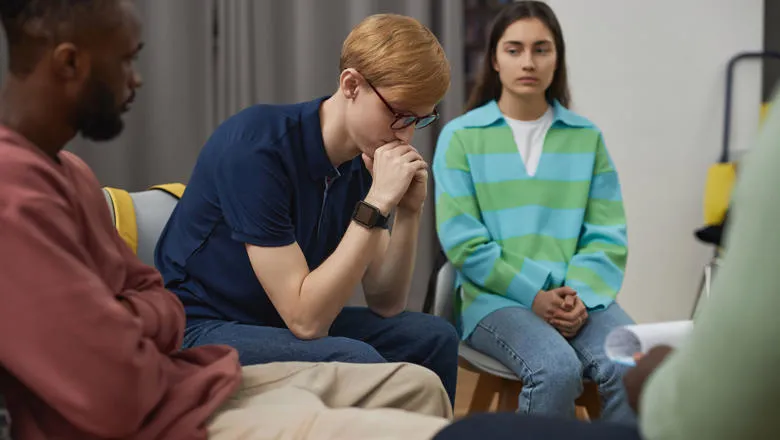Less than a quarter of young people with mental health problems can access services, meaning there is an urgent need for easily accessible and effective mental health resources. We found that the DISCOVER programme can improve young people’s mental health. This new NIHR funding will allow us to make sure this service can be implemented without the involvement of a research team and provide guidance to schools in the future.
Dr June Brown, Reader/Associate Professor in Clinical Psychology at King’s IoPPN and Joint Chief Investigator on the study.
01 July 2025
£1.9 million to scale up DISCOVER workshops to improve young people's wellbeing
Researchers at the Institute of Psychiatry, Psychology & Neuroscience (IoPPN), King's College London, and University College London (UCL) have been awarded £1.9 million from the National Institute for Health and Care Research (NIHR) to improve the mental wellbeing of 16–18-year-olds with school-based workshops.

The findings from a large trial published last year revealed accessible day-long DISCOVER workshops delivered in secondary schools can improve depression, anxiety and wellbeing among 16- to 18-year-olds.
The new NIHR funding will allow the researchers to explore the best ways to implement the workshops in the NHS.
About the DISCOVER workshop programme
The DISCOVER programme is an award-winning, school-based workshop programme for sixth-form students who experience stress, anxiety or low mood. It uses psychoeducation and cognitive behavioural therapy (CBT) methods to equip sixth form students with tools to better manage their stress.
The programme was designed to be accessible and non-stigmatising by avoiding the use of psychiatric terminology and encouraging young people to self-refer onto the programme. It was developed with a Teenage Advisory Group of 16–18-year-olds to reach young people more easily and maximise engagement.
The researchers investigated the effectiveness of the DISCOVER programme in the Brief Educational workshops in Secondary Schools Trial (BESST), which recruited 900 students from 57 schools across four regions in England. The findings, published May 2024, showed that a day-long version of the programme was both a clinically and cost-effective means of improving young people’s mental health.
Implementing the workshops
With the new funding, the researchers will test whether the DISCOVER programme can be implemented in an NHS environment without a specialist research team. They will explore whether the clinical and cost effectiveness of the workshops can be sustained in three sites that were involved in the BESST trial and investigate if similar outcomes can be achieved in three new non-trial NHS environments.
The findings will allow them to produce a guide to help other non-specialist sites successfully run the workshops and support wider roll-out across England.
Early intervention is crucial for improving young people’s mental health. DISCOVER has shown that school-based interventions can equip students with practical tools to manage stress and improve their well-being. This funding allows us to scale up delivery of DISCOVER, learning how best to embed it in schools to make it accessible to young people across England.
Dr Jenny Shand, Associate Professor in Health Services and Population Research at UCL and Joint Chief Investigator on the study.
The project is funded by the NIHR Health and Social Care Delivery Research Programme.
About King's Maudsley Partnership
This research to improve children and young people’s mental health will take place as part of the King’s Maudsley Partnership.
The King’s Maudsley Partnership for Children and Young People will transform our understanding and treatment of young people’s mental health through a unique collaboration between specialist clinicians from the South London and Maudsley NHS Foundation Trust and leading academics at King’s College London.
For more information, please contact Anisa Haque (School of Mental Health & Psychological Sciences Communications Assistant).

